Introduction to Montessori Parenting Style: Core Principles and Philosophy
The Montessori parenting style is a holistic approach that emphasizes independence, creativity, and individualized learning, reflecting the core principles of Montessori education. Rooted in the teachings of Dr. Maria Montessori, this philosophy nurtures a child’s natural curiosity and desire to learn, encouraging self-directed activity and hands-on learning. Montessori parenting aims to develop well-rounded individuals prepared for lifelong success and personal growth by fostering respect and support.
Understanding Montessori Parenting: Definition and Overview
Montessori parenting is an educational approach that applies the principles of the Montessori method to parenting practices. Dr. Maria Montessori developed this technique to nurture a child’s natural curiosity and independence.
In a Montessori household, parents create an environment encouraging children to learn at their own pace, promoting self-directed activity and hands-on learning. This parenting style gives children the freedom to make choices while ensuring a structured environment supporting their development.
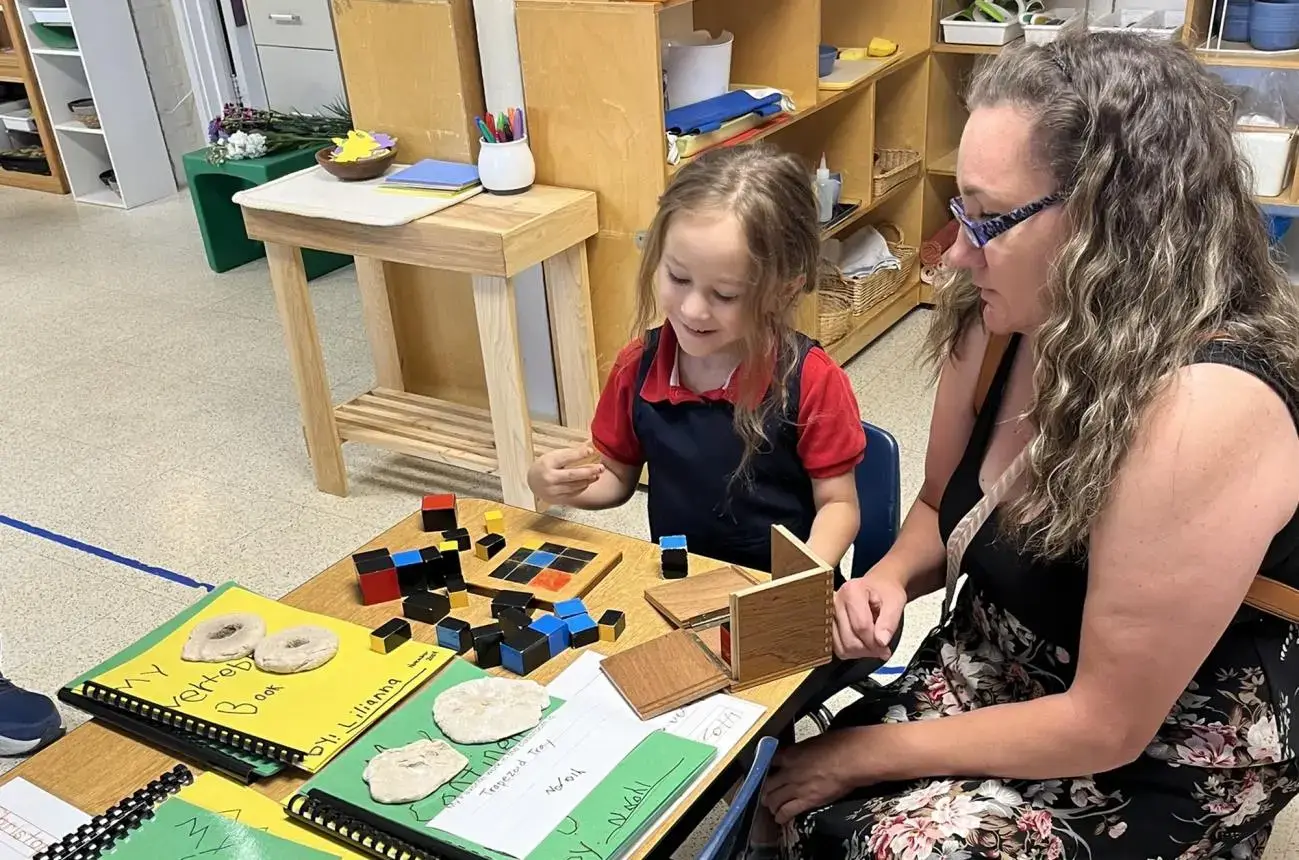
Core Principles: Independence, Respect, and Self-Directed Learning
- Independence: One of the fundamental principles of Montessori parenting is fostering independence in children. Parents encourage their children to perform tasks independently, from dressing to preparing simple meals. This empowerment helps children develop confidence and self-reliance.
- Respect: Respect is integral to Montessori parenting. Parents model respectful behavior towards their children and others, creating a harmonious and cooperative environment. This respect extends to the child’s individuality, allowing them to express themselves and their preferences.
- Self-Directed Learning: Montessori parenting emphasizes self-directed learning, where children are encouraged to follow their interests and learn through exploration. Parents provide access to educational materials and activities that stimulate curiosity and support their child’s developmental needs. This approach helps children create a lifelong love for learning and critical thinking skills.
Benefits for Child Development
Montessori parenting offers numerous benefits for child development:
- Enhanced Cognitive Skills: The Montessori approach promotes hands-on learning and problem-solving, enhancing children’s cognitive abilities and critical thinking skills. Children develop a deeper understanding of concepts by engaging in activities that require concentration and effort.
- Improved Social Skills: Through respectful interactions and cooperative play, children learn critical social skills such as communication, empathy, and conflict resolution. Montessori parenting encourages children to work together and respect each other’s differences, fostering a sense of community.
- Emotional Growth: Montessori parenting supports emotional growth by allowing children to make choices and experience the consequences of their actions. Children learn to manage their emotions, form resilience, and gain a sense of responsibility.
- Physical Development: Montessori activities often involve fine and gross motor skills, contributing to children’s physical development. Pouring water, buttoning clothes, and outdoor play enhance coordination and physical agility.
- Creativity and Imagination: The freedom to explore and create in a Montessori environment nurtures creativity and imagination. Children are encouraged to express themselves through art, music, and imaginative play, which is crucial for holistic development.
Montessori parenting is a holistic approach that integrates the principles of independence, respect, and self-directed learning into daily parenting practices. Parents can enhance their children’s cognitive, social, emotional, physical, and creative development by fostering an environment that supports these core principles.
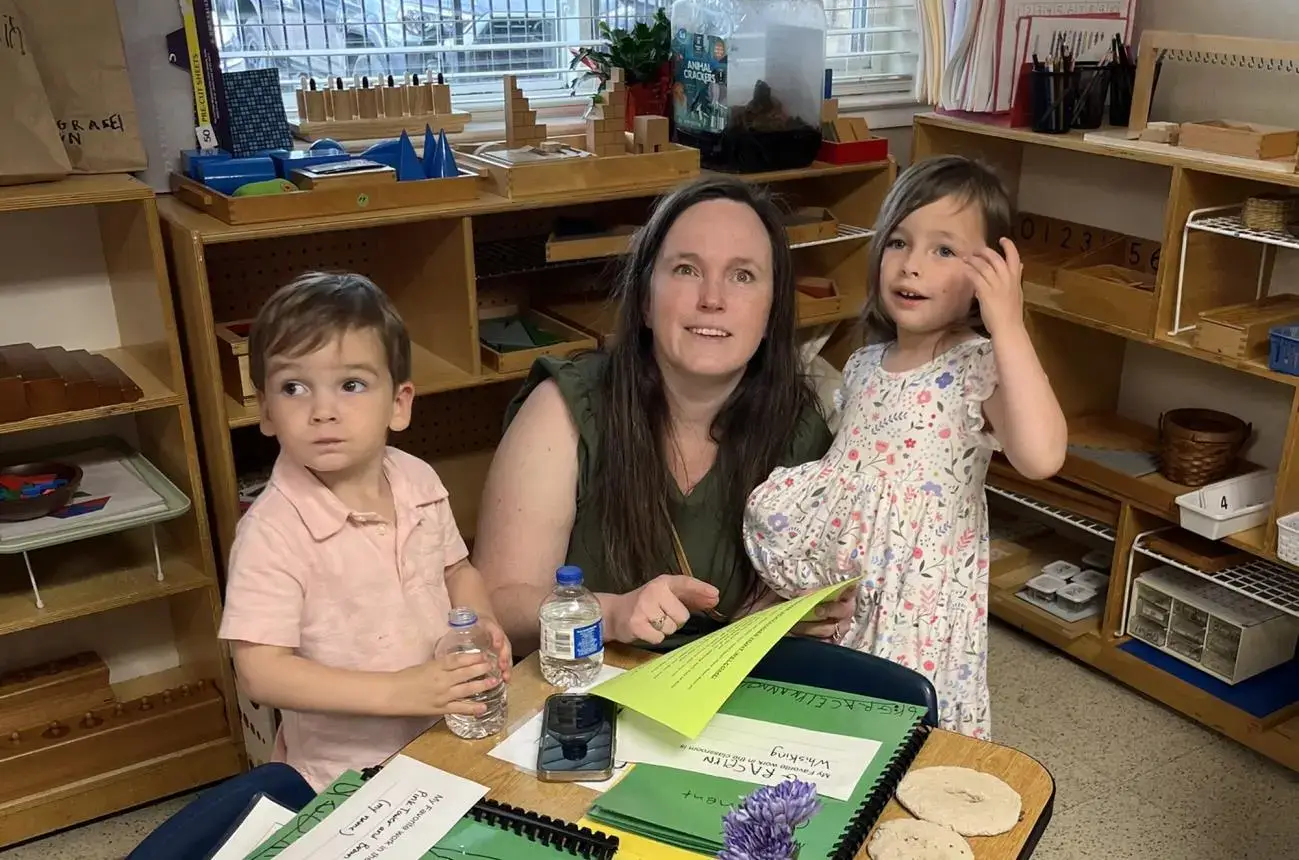
The Montessori Method Parenting Approach
The Montessori method is an educational approach centered on the belief that children are eager to learn. Children make creative choices in their education while the classroom and the teacher offer appropriate activities to track the process. The approach nurtures the child’s physical, social, emotional, and cognitive development.
Key features of the Montessori method include:
- Child-Centered Learning: The focus is on the child’s interests and pace of learning.
- Prepared Environment: Classrooms facilitate independent learning and exploration.
- Role of the Teacher: Teachers act as guides rather than traditional instructors.
How It Translates into Parenting Practices
Montessori parenting adopts these educational principles in the home environment, fostering a child’s independence, curiosity, and self-discipline. Parents who follow this approach aim to create a supportive, nurturing atmosphere that mirrors the Montessori classroom’s structure.
Here are some ways Montessori principles translate into parenting practices:
- Environment: Parents create a prepared environment at home, with child-sized furniture and accessible learning materials that encourage independence.
- Observation: Parents carefully observe their children to understand their needs and interests, guiding them accordingly without interference.
- Choice: Children are given choices within set boundaries, empowering them to make decisions and learn from the outcomes.
- Respect: Montessori parents respect their children’s individuality and encourage them to express their thoughts.
Examples of Montessori Activities at Home
Implementing Montessori activities at home is straightforward and can significantly enhance a child’s development. Here are some examples:
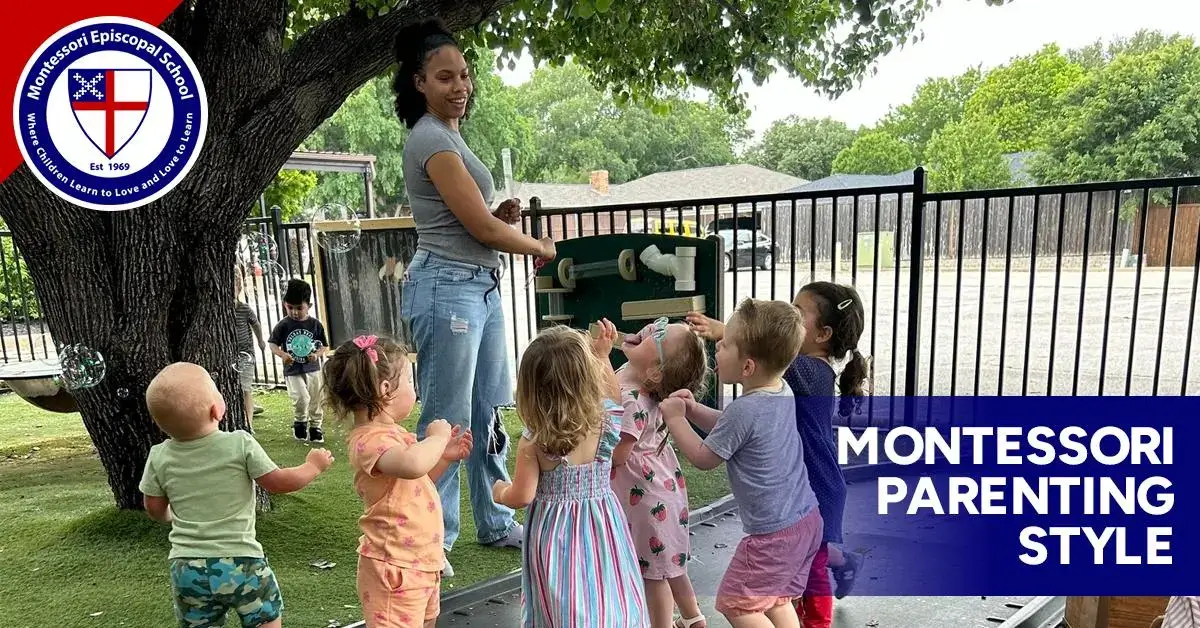
Practical Life Activities:
- Pouring Water: Provide small pitchers and glasses for children to practice pouring, developing motor skills and hand-eye coordination.
- Buttoning and Zipping: Use clothing or dressing frames to help children practice buttoning and zipping, promoting independence in dressing themselves.
- Cooking: To teach practical skills and responsibility, involve children in simple cooking tasks, like mixing ingredients or washing vegetables.
Sensorial Activities:
- Color Matching: Use colored objects or cards to help children develop visual discrimination and color recognition.
- Sound Cylinders: Create or buy cylinders filled with different materials to encourage auditory discrimination through matching sounds.
Language Activities:
- Sandpaper Letters: Use sandpaper letters for children to trace, helping them learn the shapes and sounds of letters through tactile feedback.
- Reading Corners: Set up a cozy reading area with various books to foster a love for reading and language development.
Mathematics Activities:
- Counting Beads: Use bead chains to teach counting and the concept of numbers.
- Shape Sorting: Provide shape sorters to help children recognize and categorize different shapes.
Parents can create a rich learning setting that nurtures their child’s natural curiosity and developmental needs by incorporating these Montessori activities at home. This approach supports academic growth and fosters independence, creativity, and a lifelong love of learning.
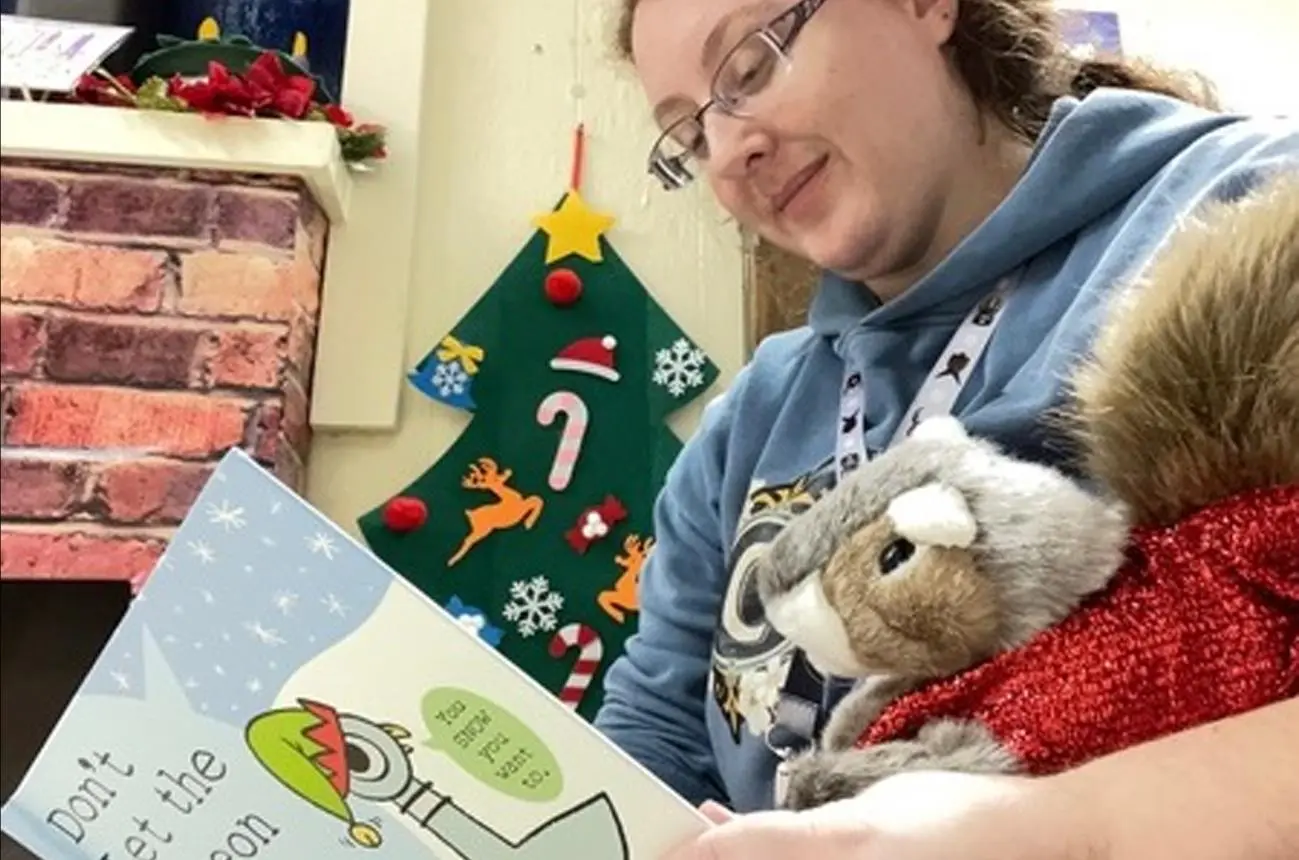
Recommended Montessori Parenting Books
Discovering the right resources can be pivotal in implementing Montessori principles at home. Some essential books provide valuable insights and practical guidance for parents.
List of Essential Books for Understanding Montessori Parenting
- “The Montessori Toddler” by Simone Davies
- “Montessori from the Start: The Child at Home, from Birth to Age Three” by Paula Polk Lillard and Lynn Lillard Jessen
- “How to Raise an Amazing Child the Montessori Way” by Tim Seldin
- “The Absorbent Mind” by Maria Montessori
- “Teach Me to Do It Myself: Montessori Activities for You and Your Child” by Maja Pitamic
Brief Descriptions and Key Takeaways from Each Book
“The Montessori Toddler” by Simone Davies
- Description: This book provides practical advice on applying Montessori principles to parenting toddlers. It includes tips on creating a Montessori-friendly environment and fostering independence.
- Key Takeaways: Understanding toddler behavior, setting up a Montessori home, and practical activities to encourage growth.
“Montessori from the Start: The Child at Home, from Birth to Age Three” by Paula Polk Lillard and Lynn Lillard Jessen
- Description: This guide helps parents apply Montessori principles from birth. It emphasizes the importance of early childhood development and offers insights into nurturing a child’s natural curiosity.
- Key Takeaways: Early childhood development stages, creating a nurturing environment, and age-appropriate Montessori activities.
“How to Raise an Amazing Child the Montessori Way” by Tim Seldin
- Description: Tim Seldin’s book is a comprehensive guide to raising children using Montessori principles. It covers various aspects of parenting, from discipline to educational activities.
- Key Takeaways: Practical advice on discipline, engaging in educational activities, and fostering independence and creativity in children.
“The Absorbent Mind” by Maria Montessori
- Description: Written by Dr. Maria Montessori herself, this book delves into the philosophy and scientific underpinnings of the Montessori method. Understanding the theory behind the practice is essential.
- Key Takeaways: This is an in-depth exploration of child development, the importance of early education, and the role of the environment in learning.
“Teach Me to Do It Myself: Montessori Activities for You and Your Child” by Maja Pitamic
- Description: This book offers a collection of Montessori activities parents can do with their children. It focuses on practical life skills and sensory experiences.
- Key Takeaways: Step-by-step instructions for activities, fostering independence, and enhancing sensory development.
How These Books Can Help Parents Implement Montessori Principles
These books are invaluable resources for parents looking to implement Montessori principles at home. Each book provides:
- Practical Guidance: Clear, actionable advice on setting up a Montessori-friendly environment and engaging children in meaningful activities.
- Understanding Child Development: Insights into the stages of child development and how to support growth through Montessori methods.
- Inspirational Ideas: This section offers various activities and approaches to stimulating learning and independence, tailored to different age groups and developmental stages.
- Philosophical Foundations: A deeper understanding of the Montessori philosophy, helping parents align their parenting practices with Montessori values.
By reading these books, parents can comprehensively understand Montessori parenting and find practical ways to incorporate its principles into their daily routines. This knowledge allows them to create a nurturing and stimulating environment that supports their child’s holistic development and fosters a lifelong love of learning.
Conclusion
Embracing the Montessori parenting style can transform your child’s development, fostering independence, creativity, and a lifelong love for learning. By understanding its core principles, implementing the Montessori method at home, and utilizing recommended books, you can create a supportive environment for your child. The benefits of this approach extend far beyond academics, shaping well-rounded, confident, and compassionate individuals.
Ready to explore more about Montessori childcare programs in Lewisville? Contact us today at Montessori Episcopal School or call (972) 895-9050 to learn how our daycare in Lewisville TX can support your family’s journey.
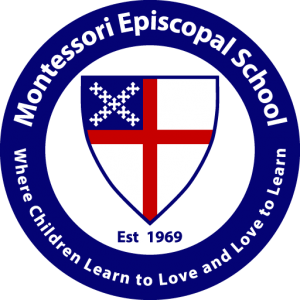
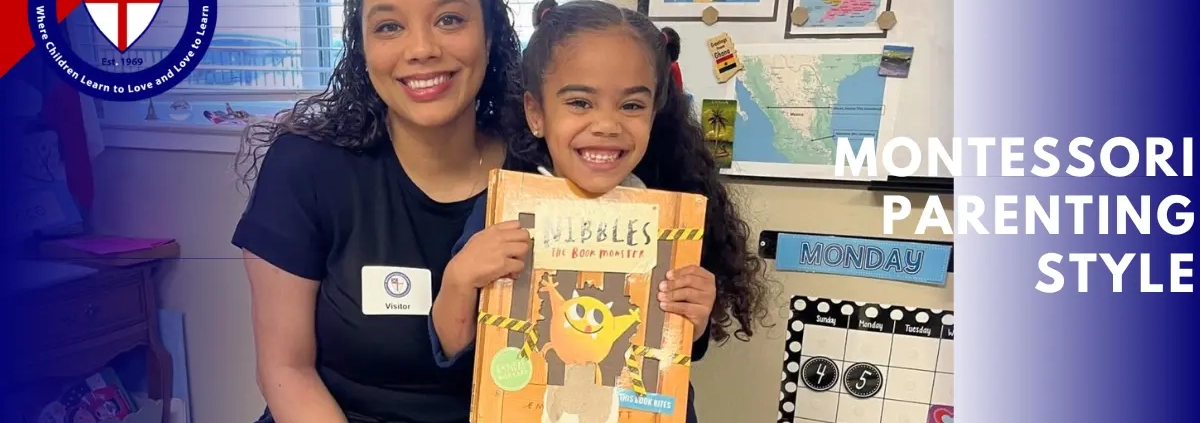
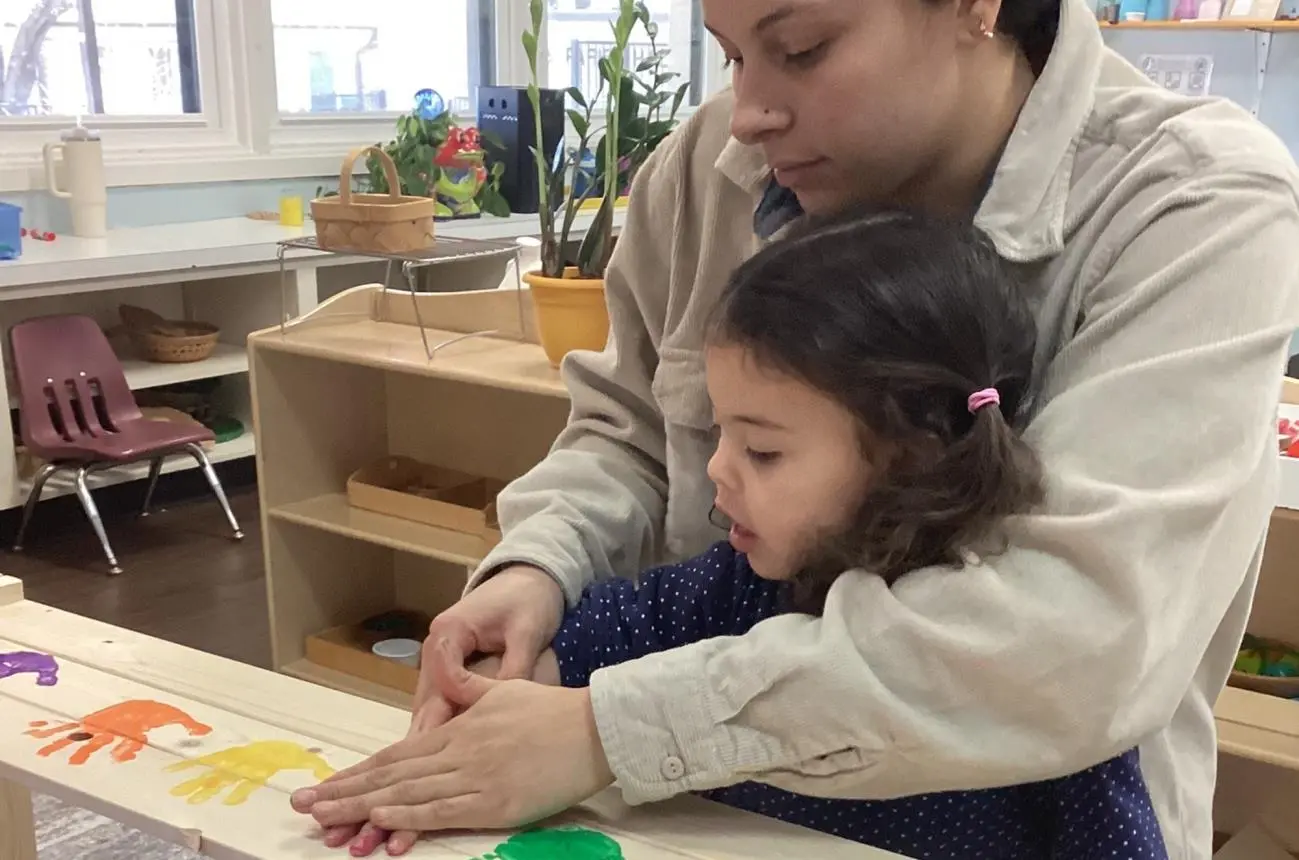


Leave a Reply
Want to join the discussion?Feel free to contribute!